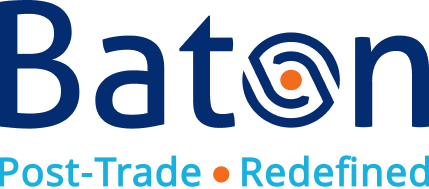High costs, low speed and insufficient transparency are just some of the key challenges associated with cross-border settlements.
For capital markets firms, the costs associated with cross-border settlements can include charges incurred due to funding balances (the pre-positioning of funds to meet externally imposed deadlines, conducting currency conversions prior to payments being made and the costs associated with managing the exchange rate risk throughout the process), technology build and support, account maintenance and messaging fees. Additionally, firms inevitably face direct and indirect costs related to the post-transaction process – costs associated with repairs, non-receipt of funds or payments that need to be recalled. These events impact treasury, operations, technology, network management and front office teams, etc. which are often involved in resolving payment issues. The cost of involving multiple resources can escalate quickly and isn’t easily quantifiable.
Cross border Settlements: Funding and intraday liquidity challenges
The funding of obligations is an inexact science. Banks seek to rely, at least in part, on inbound receipts to fund their payments. But, historically it has been challenging to predict when funds will arrive, and in what sequence. Even when the agent bank has received inbound funds, this is often not immediately apparent to the payments teams who frequently operate on the basis of top-of-day, batch-based information. Due to these constraints, these teams lack real-time (or even intra-day) visibility of their current funding positions.
As a result, banks often find themselves stuck between a rock and a hard place. Either withholding payments until a slow reconciliation process on inbound funds has been completed, or releasing the payment on the basis of expectation rather than fact to avoid potentially defaulting on their payment obligations. Either way, this uncertainty and lack of control creates an environment where banks generally prefund their accounts with significantly more cash than they actually need. In pre-funding these accounts, banks often face charges from their holding company and capital costs, as they’re required to put aside capital reserves that could otherwise be used for more profitable lines of business. The cost of intraday funding for a large institution has been estimated at hundreds of millions of dollars a year, with FX a key driver.
“The cost of intraday funding for a large institution has been estimated at hundreds of millions of dollars a year, with FX a key driver”
These problems are further compounded by the high numbers of trades that fail to be netted because of the operational burden, and time pressures faced by operational teams running largely manual and ad-hoc netting processes. The need to then settle an increased volume of trades on a gross basis further increases liquidity requirements and transaction costs.
Cross-boarder payments and settlements: Stepping back from the wholesale market
Away from the wholesale markets, forex transaction costs can be higher still. The charges for cross-border payments are inconsistent and depend on the method of payment and the amount, as well as the type of payment and the conversion cost. This can become particularly significant when it comes to transactions in exotic currencies. Larger corporate customers holding multi-currency accounts will also incur account fees and wire charges.
Inevitably, these charges are ultimately passed on to the end customer, who ends up footing the bill for an inefficient payment system.
“Inevitably, these charges are ultimately passed on to the end customer”
Faster payments = faster issues
The faster payments initiative, that we have heard about for some time, is not necessarily the answer. Whilst this can enable an organisation to make cross-border payments quickly, it also comes with potential concerns. Without the proper infrastructure in place to effectively track those payments and provide assurances and the mitigants that safe settlement, payment-versus-payment (PvP) and splitting offer, faster payments can in fact end up increasing the cost of the payment process.
How can Baton help banks overcome post-trade processing cost challenges?
Baton’s Core-FX™ solution allows cross-border settlements to be made on a PvP basis and offers the potential for extending PvP settlement across all currencies and counterparties. FX settlement risk (also known as Herstatt risk) is eliminated because ownership of the currencies is changed simultaneously. It is only when both sets of funds have moved that change of ownership can take place – providing the assurance that a counterparty continues to own their own funds until the very moment their counterparty has met their transfer obligations. This mechanism eliminates the risk of a payment being made to a counterparty that has defaulted on their commitments.
As the decision of when to bilaterally net and then settle those netted amounts via PvP sits with the settlement participants, the participants themselves are able to effectively align settlement timeframes (and their cadence) to meet their firm’s funding requirements. With this approach settlement can happen on-demand, multiple times intraday, without the liquidity constraints that concentrated prefunding introduces.
“With this approach settlement can happen on-demand, multiple times intraday, without the liquidity constraints that concentrated prefunding introduces”
Core-FX is backed by the Baton rulebook so that users can benefit from the latest decentralised technology alongside the certainty of a defined governance process with legally enforceable settlement finality. Because the PvP process takes place under the auspices of the Baton rulebook, the settling participants are reassured that they have legal recourse and are completely protected.
“Core-FX is backed by the Baton rulebook so that users can benefit from the latest decentralised technology alongside the certainty of a defined governance process with legally enforceable settlement finality”
Furthermore, if you can increase the visibility treasury teams have as to their current funding position, so they’re able to view on a real-time basis their balances and obligations, alongside information about the inbound payments they are expecting, they can more effectively manage liquidity and alleviate funding pressures. With Baton’s CORE technology this is possible.
Baton’s technology enables firms to completely reimagine their post-trade environment from trade-matching, through netting to settlement. In doing so, transforming high-touch, often manually intensive and siloed architectures into automated, digitally enabled and streamlined low-touch environments. As a result increasing resiliency, efficiencies and cost-savings throughout the end-to-end post-trade process.
Core-FX: A live, proven solution using DLT
In July 2022, nine months after calling for ideas on the issue, the BIS Committee on Payments and Market Infrastructure (CPMI) issued a consultative report on increasing adoption of PvP mechanisms to reduce settlement risk.
Of the 11 companies which responded to CPMI’s original call for ideas, only Baton was able to offer a live solution rather than a prototype or a product still in development or under consideration. This remains the case: Core-FX is a proven solution, trusted to net and settle billions of dollars of FX transactions via PvP everyday.
“Of the 11 companies which responded to CPMI’s original call for ideas, only Baton was able to offer a live solution rather than a prototype or a product still in development or under consideration”
On September 15th 2022, Baton will take part in the first of two industry workshops related to this report, hosted by the CPMI. The workshop, open to providers and users of FX settlement services, will focus on the potential roles of public sector stakeholders.
By using Core-FX, firms have taken major steps towards eliminating counterparty settlement risk, reducing costs and better managing funding and liquidity. Going forward, faster, more cost-effective and more transparent cross-border payments will support international trade and global development, benefiting not only individual firms but the markets and global economy as a whole.
“By using Core-FX, firms have taken major steps towards eliminating counterparty settlement risk, reducing costs and better managing funding and liquidity”
I hope that this blog has explained how Baton’s DLT based technologies can help firms overcome the cost challenges associated with cross-border settlement. If you have any questions or would like to learn more about Baton Core-FX please don’t hesitate to contact me at [email protected].

